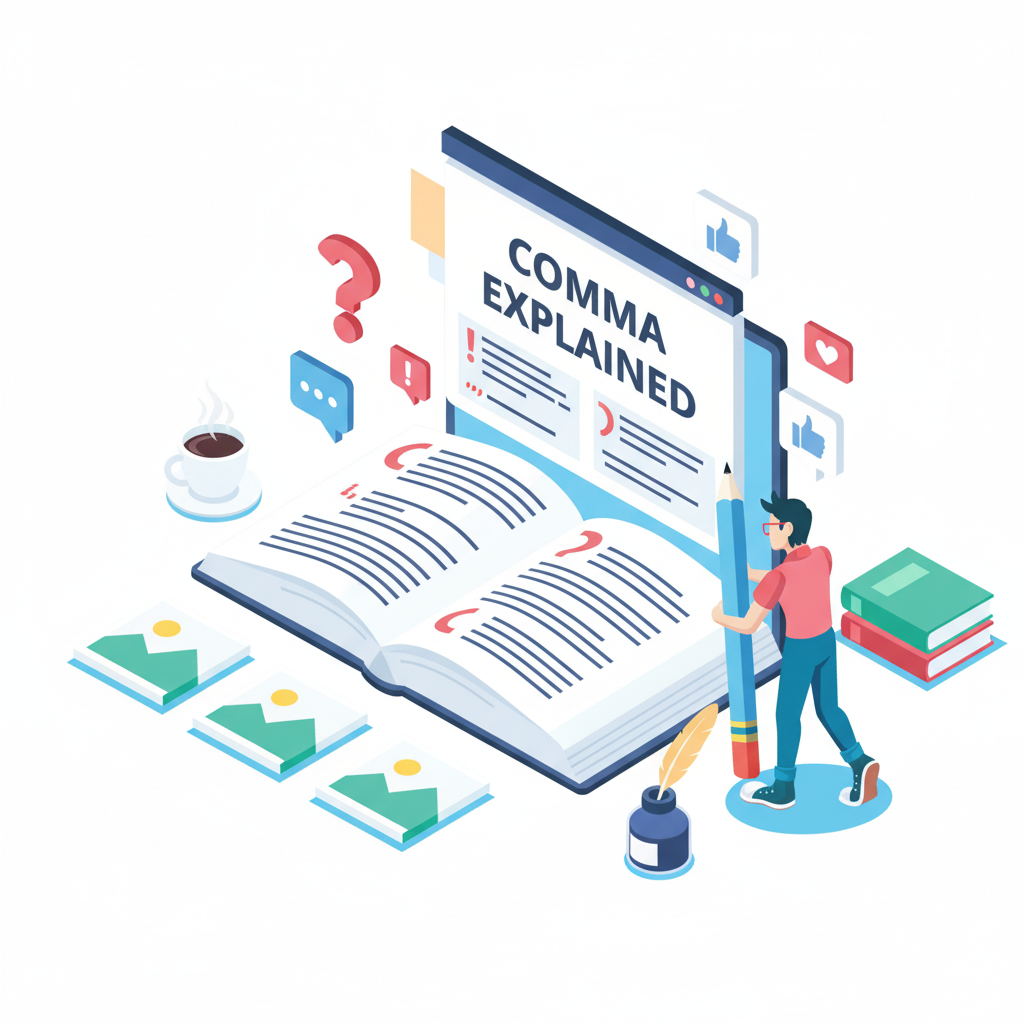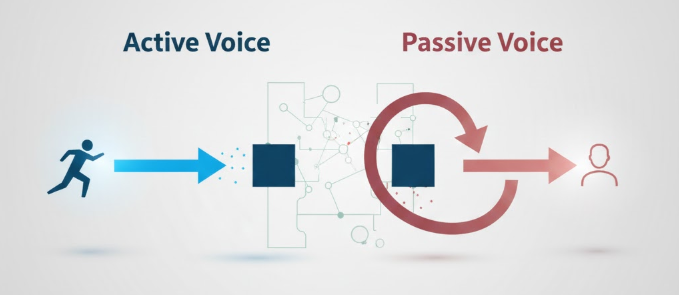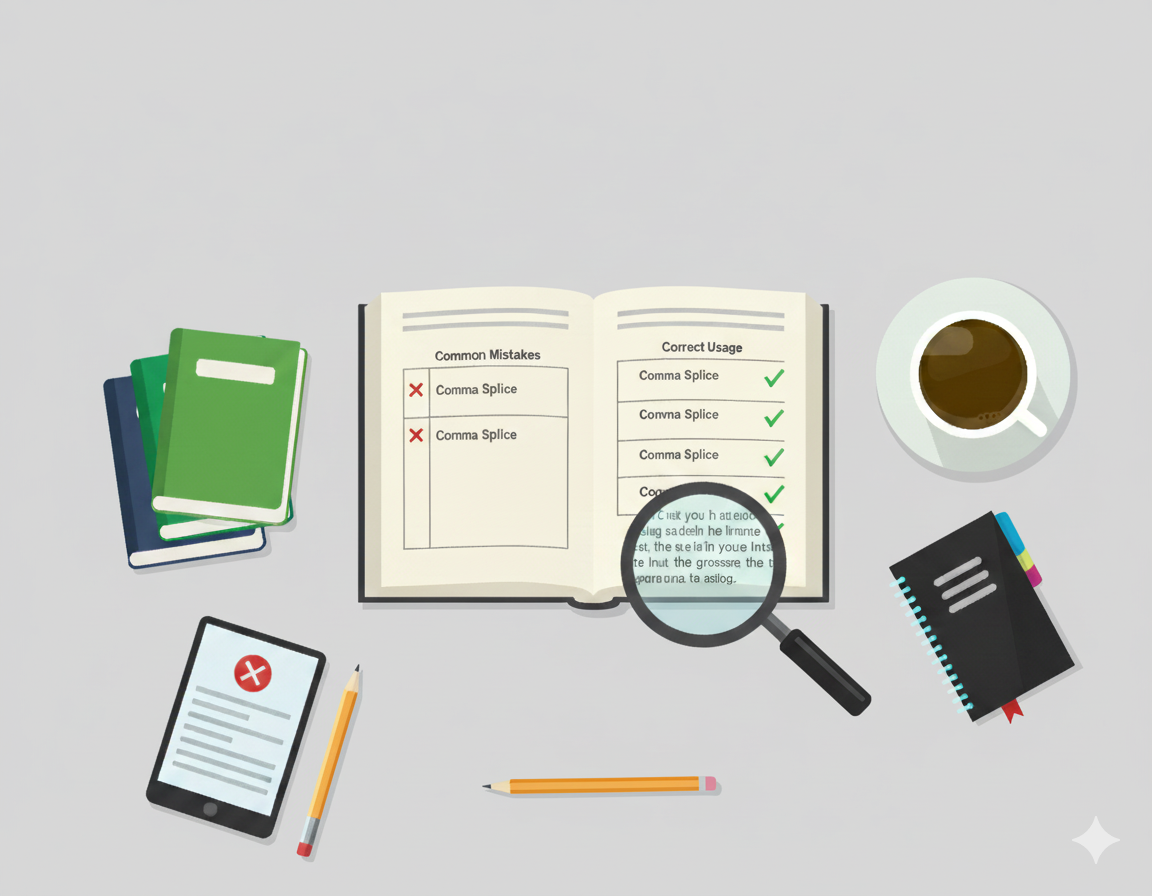
Comma Rules Explained: 10 Easy Examples with Practice Exercises
Comma Rules Explained: 10 Easy Examples with Practice
A practical guide to commas for students and writers, with clear rules, examples, and interactive exercises where answers are hidden under a chevron.
Why commas matter
Commas help organize your writing, indicate pauses, and clarify meaning. A missing or misplaced comma can change the sense of a sentence or make it harder to read.
1. Use commas to separate items in a list
I bought apples, oranges, and bananas at the store.
2. Use commas before conjunctions in compound sentences
I wanted to go for a walk, but it started raining.
3. Use commas after introductory phrases or clauses
After the meeting, we went out for lunch.
4. Use commas to set off nonessential information
My brother, who lives in Canada, is visiting next week.
5. Use commas with dates, addresses, and titles
He was born on April 15, 1995, in Boston, Massachusetts.
6. Use commas with direct quotations
She said, "I will finish my homework before dinner."
7. Use commas to prevent confusion
Let’s eat, grandma! (without the comma it becomes “Let’s eat grandma!”)
8. Use commas with coordinate adjectives
It was a long, tiring, and stressful day.
9. Use commas in numbers over 999
The population of the city is 1,234,567.
10. Use commas to separate contrasting elements
He is friendly, not rude.
Practice Exercises
Try adding commas where needed. Click "Show Answer" to check your solution.
I went to the store and bought milk bread and eggs.
After finishing her homework she went to bed.
My best friend who moved to Spain is visiting this summer.
He is smart talented and hardworking.
Lets eat grandma
Tips for mastering commas
- Read sentences aloud — natural pauses often signal commas.
- Learn one rule at a time and practice with examples.
- When in doubt, check if removing or adding a comma changes meaning.
- Use exercises with hidden answers to test yourself without immediate hints.



